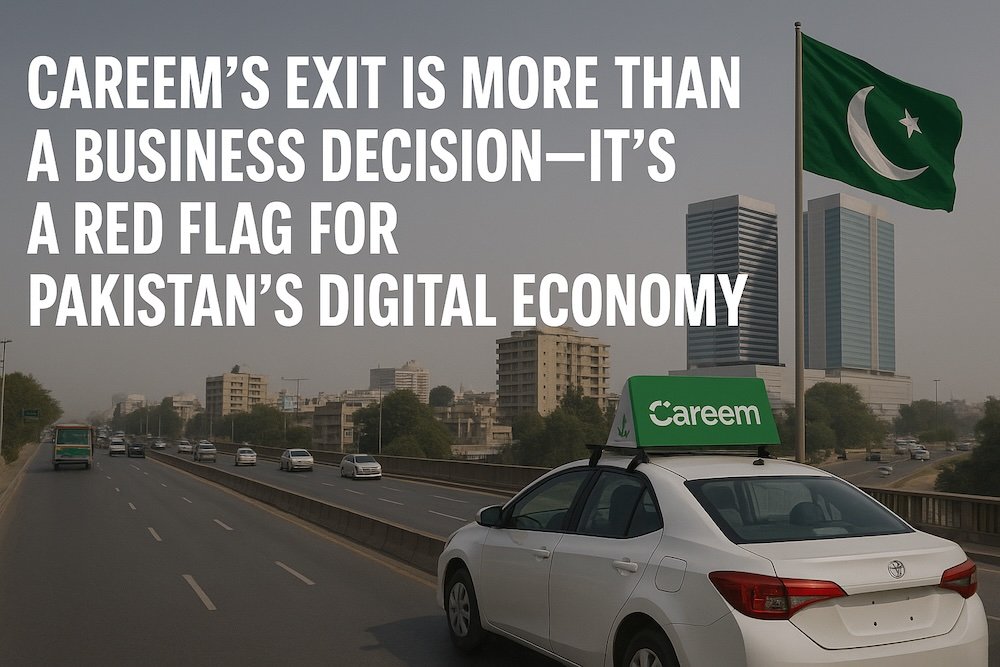Careem’s announcement to suspend its ride-hailing operations in Pakistan after more than a decade is not just the end of a business cycle—it’s a jarring wake-up call for the country’s digital ambitions. A company that was once celebrated as a regional unicorn and a symbol of Pakistan’s tech promise is pulling the plug, leaving behind millions of users, thousands of drivers, and a bitter reality check for policymakers and entrepreneurs alike.
For years, Careem operated in Pakistan with optimism, investing heavily in building an ecosystem that offered flexible income to drivers and digital convenience to riders. Its departure—announced with little fanfare but massive implications—comes amid what many describe as a “harsh and inconsistent” regulatory environment. According to the company, it was no longer viable to operate the ride-hailing business due to rising operational costs, unclear government policies, and an unstable macroeconomic landscape. This isn’t the case of a failed startup; it’s the exit of a major player unable to justify staying in a market that seems increasingly inhospitable to digital innovation.
This decision also reflects the growing disillusionment among tech companies with the Pakistani business climate. The ecosystem, once brimming with potential and backed by a young population and rising smartphone penetration, is struggling to keep pace with the support required to retain and scale tech-driven services. Careem’s food delivery and payments verticals had already been scaled down earlier, and the suspension of ride-hailing marks a full retreat from its most visible operation in the country. The company will retain its captains’ app and offer corporate services in limited form, but the writing is on the wall: the Pakistani market is no longer worth the full investment.
It’s easy to point fingers—economic instability, political uncertainty, and regulatory confusion all played a role. But the deeper issue lies in the state’s continued failure to understand and adapt to the needs of the digital economy. Overregulation in some areas, under-regulation in others, and no cohesive national policy for nurturing platforms like Careem have created a landscape where innovation is stifled rather than supported.
The impact is not just reputational. Thousands of Careem drivers—many of whom relied on the platform for daily income—now face sudden unemployment or the need to switch to more informal, less secure alternatives. Consumers, too, are left with fewer mobility options at a time when inflation and fuel costs already strain daily travel. The exit creates a vacuum that won’t easily be filled, not just because of logistical complexity, but because investor confidence has been shaken. If a company backed by Uber can’t survive here, who else will take the risk?
Careem’s exit should be treated as a national inflection point. It is not merely the loss of a foreign brand—it’s a damning verdict on how Pakistan supports—or fails to support—its digital economy. If policymakers, regulators, and industry leaders do not act now to course-correct, this won’t be the last exit we witness. It will merely be the beginning of a long, painful retreat.















